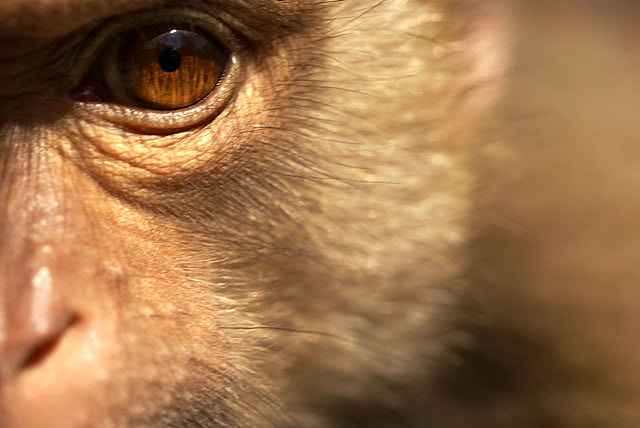A team of researchers from three universities have succeeded in creating the first device that boosts the brain power of primates. In the study, five rhesus macaques were trained to complete an image-matching task. Each was shown one photo, and then asked to select the same photo from a larger pool of images. Using a tiny probe inserted into the monkey's cerebral cortex, a computer recorded and analyzed the neural signals being sent when the primate was studying the first photo and when it made the "right" decision in the game. Over the course of two years, the monkeys acquired a 75% proficiency in this task.
The macaques were all thrown a curveball when they were dosed with cocaine and asked to perform the same task. Predictably, their performance fell. By engaging an electrode array implanted in their brains, however, the scientists were able to replicate the electronic "success signals" they had gathered earlier. Not only did the monkeys' performance improve, but it actually surpassed the normal rate of success. The researchers hope that neural implants like these may hold promise for patients with brain injuries and dementia, or for anyone who wants to dominate at quiz night.
This technology is the neural equivalent of a garlic press: It's a single-task tool. The implant only helps the monkeys to remember pictures and not, say, how to disable the lab's security system and obtain a gun permit. But the sheer fact that a digital device can measurably improve mental performance is astonishing. If anything, rhesus monkeys won't have to worry about memory loss after a long night out clubbing.

Share your thoughts and join the technology debate!
Be the first to comment